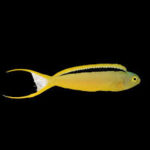The Relationship Between Dragons and Deities in Chinese Mythology

Dragons are among the most powerful and revered beings in Chinese mythology. Their significance stretches across numerous legends, representing not just a force of nature but also a celestial connection between gods, emperors, and the world of humans. The dragon’s role in Chinese folklore is vast and multifaceted, encompassing the realms of creation, protection, and harmony. In particular, its relationship with deities in Chinese mythology is especially noteworthy. As heavenly creatures often depicted as divine or semi-divine beings themselves, dragons share a unique bond with Chinese gods, acting as protectors, messengers, or companions.
This article explores the fascinating relationships between dragons and deities in Chinese mythology, shedding light on how these mythical creatures work in tandem with gods to maintain cosmic balance, control natural forces, and secure the welfare of humanity.
The Role of Dragons in Chinese Cosmology
Dragons, known as “Lóng” (龙/龍) in Chinese, are not mere mythological creatures but are central figures in the understanding of the universe’s structure. In Chinese cosmology, the dragon symbolizes the primal forces that shape the world, especially water, rain, and other elemental energies. It is believed that dragons are the key intermediaries between heaven and earth, able to connect the human world with the divine.
In ancient Chinese cosmological traditions, there is a conception of a hierarchy of gods who oversee the forces of nature. Dragons frequently play a crucial role in assisting these deities in their duties, especially in relation to maintaining harmony between the elements. They are often seen as protectors of sacred places or powerful beings who ensure the smooth functioning of the universe.
Dragons and the Jade Emperor (玉皇大帝)
The Jade Emperor, known as “Yù Huáng Dà Dì” (玉皇大帝), is one of the highest deities in Chinese mythology. He rules over heaven and the earthly realm and is believed to be the ultimate authority in the celestial hierarchy. As the ruler of the heavens, the Jade Emperor has command over numerous other gods and deities, and dragons are often his loyal servants and messengers.
Dragons are especially important in stories about the Jade Emperor because they serve as protectors of his domain. In one famous tale, the Jade Emperor sends his dragons to control the waters of the world, ensuring that floods do not destroy the land. These dragons are said to possess the power to call forth storms and control the seas, and they are entrusted with the responsibility of maintaining the balance of water, which is essential for life and prosperity.
Moreover, the Jade Emperor is often depicted with dragons by his side. In imperial Chinese art and architecture, dragons were often featured on the Jade Emperor’s throne or in the heavenly palace, symbolizing his divine authority and the cosmic order that he upholds. These dragon figures acted as divine agents, enforcing the will of the emperor and maintaining celestial order.
The Dragon King (龙王) and the Water Deities
One of the most significant relationships between dragons and deities in Chinese mythology is that between dragons and the Dragon Kings (龙王). The Dragon Kings are a group of powerful water deities who rule over the oceans, rivers, lakes, and other bodies of water. They are often depicted as dragon-like beings with human characteristics and are believed to have the ability to control storms, floods, and rainfall.
There are four main Dragon Kings in Chinese mythology, each ruling over one of the four seas—East Sea, West Sea, North Sea, and South Sea. Each Dragon King is a deity in his own right and possesses the authority to summon rain, protect aquatic life, and maintain the balance of water in the world.
In stories of the Dragon Kings, these deities often interact with both humans and other gods. They play a key role in maintaining cosmic balance by regulating the natural world. In many myths, the Dragon Kings are called upon to assist or intervene during times of drought or excessive flooding. Their ability to command the rain or calm the seas makes them vital figures in Chinese mythology. As messengers of the Jade Emperor, the Dragon Kings also serve as intermediaries between the human realm and the divine realm, enforcing the Jade Emperor’s will when it comes to water and weather.
The Five Emperors and the Dragon
The Five Emperors, known as “Wǔ Dì” (五帝), are another important group of deities in Chinese mythology. They are the five legendary rulers who are said to have governed China in ancient times, each overseeing a specific element of the world. According to legend, each of the Five Emperors was associated with a particular dragon, which helped them rule the lands, maintain order, and manage natural phenomena.
- The Yellow Emperor (黄帝): The Yellow Emperor is one of the most famous of the Five Emperors and is often regarded as the ancestor of the Chinese people. He is associated with the Earth and the dragon that helped him maintain harmony and order in his kingdom. The Yellow Emperor’s dragon is often seen as a symbol of his imperial power, able to control the forces of nature to protect the land and its people.
- The Flame Emperor (炎帝): The Flame Emperor is another of the Five Emperors, and his dragon is associated with fire and heat. It is said that the Flame Emperor’s dragon had the power to control fire, and he used this dragon to ward off natural disasters, including wildfires, and to ensure the prosperity of his kingdom.
- The Black Emperor (黑帝): The Black Emperor, associated with water and darkness, is sometimes depicted as the ruler of the underworld. His dragon has the power to control water and the seas, bringing balance to the environment and regulating the flow of rivers and lakes. The Black Emperor’s dragon is often shown as a protector of sacred spaces, such as temples and holy mountains.
- The Red Emperor (赤帝): The Red Emperor rules over the element of metal and is associated with wealth and prosperity. His dragon is said to protect sacred treasures and ensure the safe flow of precious metals throughout the empire. This dragon is often seen as a symbol of wealth and is invoked during times of great need or scarcity.
- The White Emperor (白帝): The White Emperor governs over the element of wood and is associated with growth and vitality. His dragon is linked to the seasons and plays a role in ensuring that crops are nurtured and that the cycles of nature continue uninterrupted. This dragon is also said to bring harmony and balance between humans and the natural world.
Each of these emperors, and their respective dragons, embody different aspects of cosmic balance, and their interactions are essential in maintaining harmony within the universe.
The Role of Dragons in Taoism
Taoism, one of the major philosophical and religious traditions of China, also places significant emphasis on the role of dragons. In Taoist cosmology, dragons are considered to be spiritual beings that embody the primal forces of creation and transformation. Taoist dragons are often depicted as guardians of sacred mountains or as protectors of the Tao, the natural way of the universe.
In Taoist thought, dragons are believed to possess great wisdom and spiritual power. They are seen as symbols of transformation, capable of guiding individuals on their spiritual journey toward enlightenment. The Taoist dragon is not a mere physical entity but a manifestation of the divine energies that flow through all things, representing the cyclical nature of existence and the constant process of transformation.
Taoist mythology often speaks of the dragon’s role in connecting the physical world with the spiritual realm. In Taoist alchemy, dragons are sometimes used as metaphors for the spiritual energies that circulate within the body, particularly the energies associated with life force or “Qi.” The dragon, in this context, represents the power of transformation and inner alchemy, guiding practitioners toward spiritual immortality.
Dragons as Protectors and Messengers of the Gods
In addition to their roles as cosmic forces, dragons are frequently depicted as protectors of gods and sacred places in Chinese mythology. They are often sent by deities to guard temples, treasures, and holy spaces, ensuring that no harm befalls the divine or the sacred. As messengers of the gods, dragons also carry important communications between the heavens and the earthly realm, relaying the will of the gods to humankind.
In many myths, dragons appear as faithful companions or servants of the gods, aiding them in their quests, protecting the innocent, or executing divine justice. Their loyalty to the gods reflects their divine nature and their connection to the celestial realm.
Conclusion
Dragons and deities share a unique and powerful relationship in Chinese mythology, embodying the forces of nature, cosmic balance, and divine will. From the Jade Emperor to the Dragon Kings, the Five Emperors, and the Taoist concept of spiritual transformation, dragons play a crucial role in maintaining harmony between the heavens and the earth. Through their relationships with gods, dragons ensure the balance of natural forces, the prosperity of the land, and the protection of sacred places. Their presence in mythology reinforces the belief that the divine and natural worlds are intricately connected, with dragons acting as intermediaries, protectors, and powerful agents of cosmic order. This mythological understanding of dragons continues to influence Chinese culture today, reminding us of the enduring power and wisdom these legendary creatures hold in the world.

